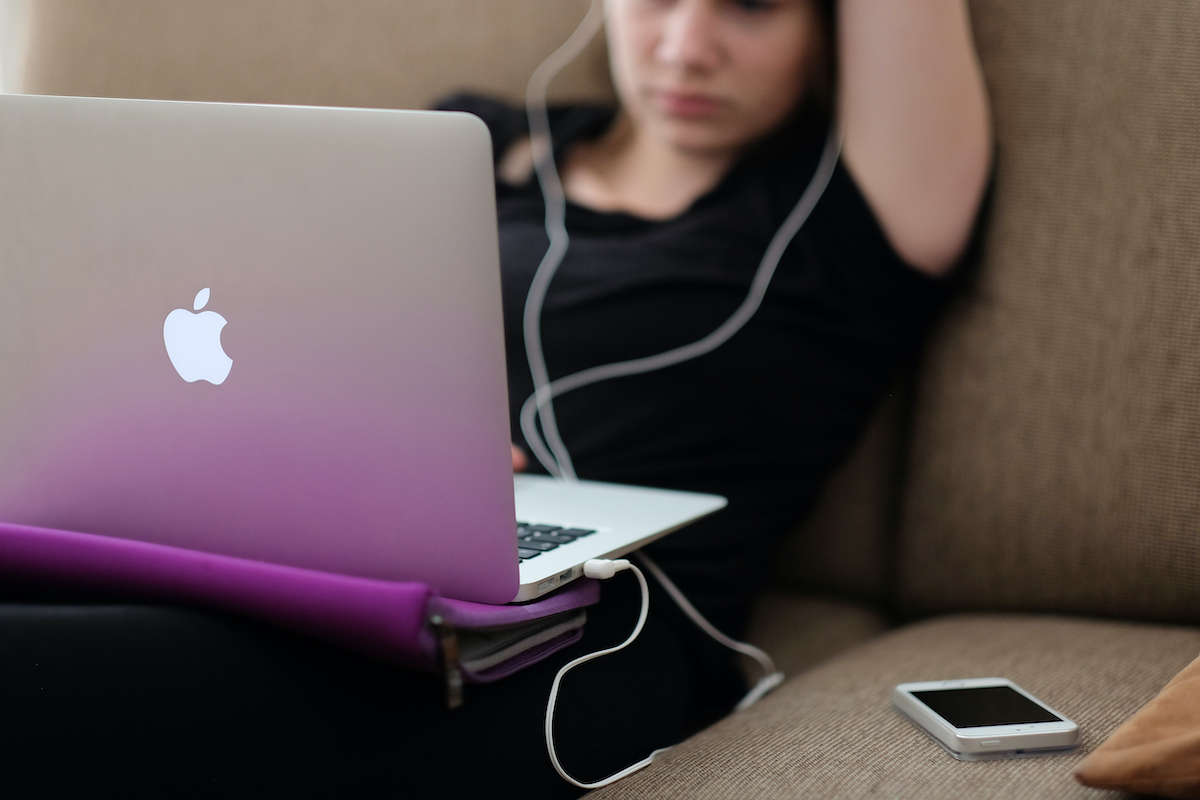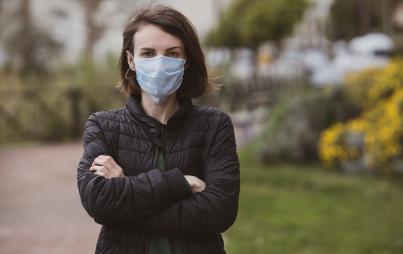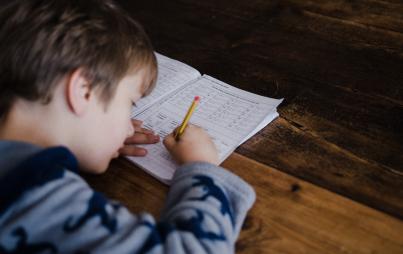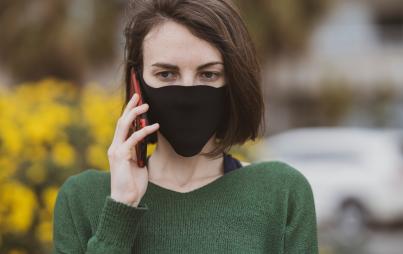
Photo by Steinar Engeland on Unsplash
This article first appeared on Your Tango and has been republished with permission.
Life as you've known it probably goes something like this: school ends in June and summer vacation begins, offering a predictable, planned for, and welcomed change of pace.
As a teen in the United States, you go to the beach, hang out with friends, and go to family or neighborhood barbecues. Maybe you work at a camp, restaurant, or other establishment with peers who become your close friends, even beyond being added to your Snapchat or Insta.
As a parent of a teen (or teens) in the US, you may also look forward to their more relaxed summertime schedule. But this year, right at this very moment, things are different and unpredictable — at least for the foreseeable future — as millions of families deal with school closures and workplace shut downs, with kids stuck at home for who knows how long.
As of this week, UNESCO estimates that 89% of the world's student population is out of school, their education interrupted by COVID-19.
With no vaccine or known treatment yet available to battle the coronavirus pandemic, even the most privileged teens are going through what's referred to as an "adverse childhood experience," four or more of which place one at risk for long-term physical and mental health issues.
While mandatory social distancing measures are critical to flattening the curve of COVID-19, even the most comfortable version of quarantine translates to being under "house arrest," as some teens I've met with recently for telehealth therapyhave described it.
You Might Also Like: The Trials And Tribulations Of Raising Teenagers
Managing depression caused by or worsened during coronavirus-related social isolation has been on everyone's minds, especially teens.
This is no surprise, really. For teens, peer relationships and social interaction are like oxygen — essential, nonnegotiable.
Friendship are what adolescence is all about; peer relationships are often more important to their development at this age than relationships with family. As one teenager told me this week, life without the ability to spend time with friends in person is "sheer hell."
The number one question teenagers and parents have been asking is, “How am I going to get through this?”
For parents looking for ways to help their kids navigate this strange time in history, know that modeling positive coping strategies can be especially effective.
Here are 5 ways to help teens deal with loneliness, depression and social isolation until things return to normal.
1. Reappraise and reframe the situation.
Is this really the worst thing ever? Find the silver linings where you can. This is a good time to do those things you say you never have time for but wish you did (more on that later). t's also a reminder of how much people we often take for granted (our closest family and friends) really matter.
If you think something is pure misery — i.e., "the worst thing ever is not seeing my friends" — it is.
If you can reframe that — i.e, "not seeing my friends isn't ideal, but there are some benefits" — that is how it will be instead.
In many way, your mind creates your reality. Use that knowledge to your advantage. And be sure to remind yourself that, sooner or later, this will end.
2. Help out.
You, the parent(s), are probably extra stressed out right now, too, given the likelihood you're dealing with things like the fear (or reality) of losing your job, the fear (or reality) of reduced income, pending bills, difficulty getting groceries, needing to stock up, and managing childcare for younger children.
What can your teenager do to be helpful? How about offering to make or oversee lesson plans for their younger siblings? What about taking initiative with chores around the house? Ask your teen to consider what they can do to help make life easier for all of you right now. Remind them of how this will benefit them, such as that it will likely keep you off of their back.
One of my teen patients told me her parents "don’t nag, interrogate, or do their usual other annoying things" now, because they see her chipping in and proactively shortening their to-do list.
Helping out and contributing positively will help your teen feel less lonely.
Remind your teen(s) that just by staying home and maintaining distance from people, they are playing an important part in preventing the spread of COVID-19.
Be sure they are aware that even people who aren't experiencing any symptoms could be carriers without knowing it, so resisting the urge to sneak out to see friends is critical.
Another teen told me she was furious to find out a guy she'd snuck into her house the week before ended up thinking he might have COVID-19, which meant she might have it too. Fortunately, what he thought was the coronavirus was just allergies ... "or so he said," to quote her.
3. Educate yourself so you can dispel rumors and calm fears.
Not knowing much about this virus or believing misinformation makes COVID-19 even scarier.
Teens have told me they heard this coronavirus will wipe out the entire population. That is not true.
They've also heard the whole thing is a hoax. That is also not true.
Getting the facts will help you and your teens manage fear and develop strategies for staying healthy.
For examples, scientists currently believe that once a person has been exposed to COVID-19, it may take two weeks before symptoms appear. Some people may never have symptoms and unknowingly spread it to others if they don't comply with social distancing (like what happened to the teen I mentioned above).
These facts explain why following the recommended social distancing guidelines is so important. Respect that.
Here are three of the most reputable sources of information:
- The Centers for Disease Control and Prevention (CDC)
- The World Health Organization (WHO)
- The National Institutes of Health: National Institute of Allergy and Infectious Diseases (NIH NIAID)
4. Maintain an optimistic, future-oriented outlook.
Remind yourself and your teens that there is a future beyond this crisis.
In the meantime, think about what can you do to keep your brain and body active. How about following YouTube video tutorials to learn something cool? One of my patients is learning to play the ukulele, and another is learning to juggle. Eventually your teen and their friends will be able get together to debut the new talents they've developed in person. Until then, they can update each other over FaceTime or by posting short clips to TikTok, Snapchat or Instagram.
Setting a goal and working toward it will help them feel less isolated.
5. Socialize with the help of social media and other means of virtual connection.
There are ways to strengthen friendships even during times of social isolation.
Social media and apps like Snapchat, Facebook, Instagram, and others certainly have their drawbacks, but they can connect you and your teens to the outside world and help maintain friendships.
How about scheduling video calls on Zoom or other free platforms throughout the day? Organize a virtual gathering, or even an online themed dance party. Be silly with it.
You and your kids can also check out virtual learning opportunities.
Sustaining friendships in this way is protection for your mental health.
To thrive, humans need a sense of connection, ideally to both friends and family.
This is true for all of us, and especially for adolescents.
Important note: If you or your someone you know is feeling suicidal, or if you are worried about yourself, your teen or a free, confidential, judgment-free help is available 24/7 from the National Suicide Prevention Lifeline at 1-800-273-8255.








